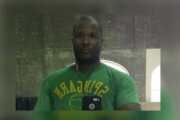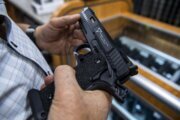SCOTT SONNER
Associated Press
CARSON CITY, Nev. (AP) — Critics say Nevada lawmakers are gambling with taxpayers’ money, but they clearly were in the minority Wednesday night as legislators moved forward with an unprecedented package of up to $1.3 billion in incentives they hope to approve in the days ahead to bring Tesla Motors’ $5 billion battery factory to the state.
Republican Gov. Brian Sandoval urged legislators in the two Democrat-controlled houses to seize an “extraordinary opportunity” to land the electric car maker’s “gigafactory” and the tens of thousands of jobs he said would help pull Nevada from the worst economic crisis in state history.
Legislative leaders, who convened in a special session, expected to approve the package of tax breaks and other incentives by Thursday night or Friday. The leader of the Assembly’s Republicans, Pat Hickey of Reno, was among those predicting it would pass by an “overwhelming” margin.
Even opponents conceded it was unlikely they’d stop the huge corporate giveaway, which they say won’t benefit typical middle-class Nevadans.
“All the lobbyists for various interests say that unless you have a hand in the Tesla deal, it’s not good for you,” said Bob Fulkerson, state director for the Progressive Leadership Alliance of Nevada.
“But everybody then also says that it’s a done deal,” he told The Associated Press on Wednesday night.
State senators spent nearly 10 hours in negotiations behind closed doors before following the Assembly’s lead and adjourning about 10 p.m.
The Senate bill requires Tesla spend $3.5 billion within 10 years. It mandates half the jobs go to Nevada residents, at both the factory expected to employ 6,000-plus and among the 3,000 projected construction jobs.
The Senate planned to return Thursday to begin debate on the biggest part of the incentive package for the electric-car maker: up to $1.1 billion to finance the abatement of Tesla’s various property, sales and use taxes, in some cases for up to 20 years.
Before it adjourned about 9 p.m., the Assembly completed public hearings on two smaller pieces of the incentive package. One would extend electricity discounts for Tesla and other large, qualifying companies that move into the state. The other clarifies that Tesla would be able to sell the cars it manufactures at Tesla-owned dealerships in Nevada.
The latter was one of the hurdles Tesla had identified in Texas before announcing last week it had picked Nevada for the battery factory in a competition that also included California, Arizona and New Mexico.
The Assembly also completed a hearing on a key part of the plan to offset nearly $200 million in tax credits for Tesla by ending a tax credit that’s been provided for 43 years to insurance companies that locate their home office in Nevada.
Chris Nielsen, secretary of the Nevada Board of Equalization, said only 1 percent of the approximately 1,200 insurance companies doing business in the state qualify for the credit and that eliminating it would save $125 million over five years.
Kirkpatrick said she long has favored ending the credit that initially was enacted on a temporary basis in 1971, and Sandoval’s administration agreed that economic development incentives should be temporary ways to bring business to the state.
“Something that lasts for 43 years or longer is not an incentive. In our view it is a subsidy,” said Steve Hill, director of the Governor’s Office for Economic Development.
Fulkerson’s alliance was part of a coalition of unions, teachers, environmentalists and minority activists who urged lawmakers to slow the rush to approve the package they said was 14 times bigger than any previous subsidies the Legislature has approved.
“We’re betting the house, and my grandfather said, ‘Never bet more than you can afford to lose,'” Fulkerson said in testimony before the Assembly. He questioned the governor’s claims that every $1 Nevadans invest in the package will bring a return of $80. “If that’s not true, then this house of cards could fall down.”
The package also drew criticism from some conservatives, including Lee Hoffman, a retired miner and chairman of the Elko County Republican Party, who said the Legislature was in effect picking “winners and losers” by extending the tax breaks exclusively to Tesla Motors Inc.
“They will benefit one specific company, one specific industry at the expense of other businesses, other taxpayers, other consumers,” Hoffman testified from Elko.
Outside the Capitol, backers of a Nevada film tax credit that would be gutted to help pay for the Tesla tax breaks protested with signs that read, “Keep Nevada Film Alive” and “Movie Industry Jobs Are Now.”
Sandoval, who ordered the special session, said the lithium battery factory and its 6,500 workers would generate more than 20,000 construction and other related jobs and up to $100 billion for Nevada’s economy over the next 20 years.
Little legislative opposition has emerged since Tesla CEO Elon Musk announced alongside Sandoval on the Capitol steps last week that Nevada was his pick for the factory expected to open in 2017. The venture is critical to cutting costs for Musk’s next line of more affordable electric cars.
On Tuesday, lawmakers toured the expansive site at the Tahoe Reno Industrial Center along U.S. Interstate 80, about 15 miles east of Sparks.
Copyright 2014 The Associated Press. All rights reserved. This material may not be published, broadcast, rewritten or redistributed.







